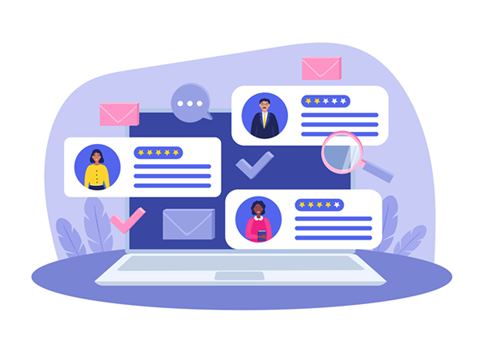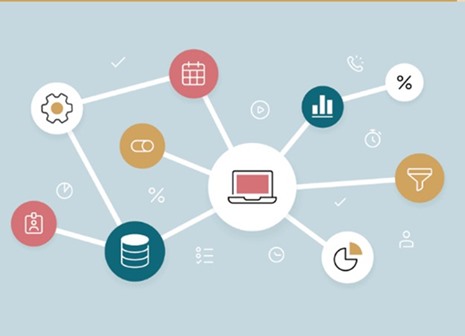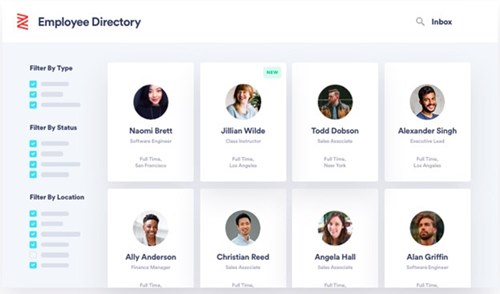
What is an HR platform?
An HR manager has more responsibilities between hiring, onboarding, compiling, and scheduling. The job is never easy as the human resources department is tough to manage. But with the usage of the right technology, all roadblocks could be wiped away pronto.
So many HR platforms have since then developed to ease the work of the HR team. Businesses of all shapes and sizes are using these platforms to get the maximum job done, both for themselves and the other employees in the company. Not only do they improve efficiency, but they make it a pleasant employee experience for the staff.

What can an HR platform do?
The functions of an HR platform can be varied. However, the primary function of an HR platform is to store, report, and process information related to the company’s employees. Therefore, advanced features like automated HR software solutions can be applicable depending on your chosen HR platform.
Some of the essential HR functions that HR platforms are capable of doing are:
- Storing and managing employee records
- Producing graphs and charts
- Encouraging employees to request leaves at their convenience
- Developing training and management courses for the staff
- Creating a recruitment procedure and automating correspondence
- Maintaining employee shift timings and attendance records

Key features of an HR platform
HR platforms, or HR systems, should be built to centralize, organize and secure all human resources—related data. Additionally, streamlining processes and getting all departments within the company to collaborate successfully is another primary goal of using such platforms. Some of the other features to look out for are:
1. Comprehensive HR database
The most effective HR platforms come with a comprehensive HR database that makes it easy to gather, collect and store data while supporting some of the best practices of HR. The database shouldn’t just focus on collecting information related to the employees but also back other data related to HR.
2. Integrated HR modules
Not all companies need the same features as other companies. The needs of the company’s system could be different, and therefore, HR platforms should be able to integrate with the expected module. Additional HR features could build an HR module. Companies can further bring together various HR modules to create an HR suite.
3. Employee self—service
By structuring a self—service platform, your HR team can save a considerable amount of time. Any modern HR platform will, without a doubt, have a secure and easy self—service system. As a result, employees can control their data while providing valuable insights to responsible HR managers.
4. Workflow approvals and automating processes
The most needed feature on an HR platform is embedded workflows and automation. This feature can make complex tasks within the organization easier to manage. Thereby completing overdue tasks and saving time for everyone working within the company.
5. Easy configuration
As technology advances and new systems come into place, all HR platforms should be flexible and adaptable to change. Without the latest technology in their systems, the platform you use can quickly become outdated. Suppliers of HR platforms might charge an additional fee for configuration tools or else provide them along with the product.
What tools can HR managers use for better working capability?
If your company still doesn’t use an HR platform, the best time to start is now. The automation within the platform makes HR workflows for each employee and each department in your organization. To give you a head—start, here are some excellent platforms that HR managers can use:

1. Test Gorilla
Test Gorilla is an HR management software designed to help businesses enhance their recruitment process by conducting pre—employement tests for eligible candidates. HR managers can receive recommended tests by entering the applicant’s name and the job profile they have applied for.
These scientifically validated tests aim to determine employees’ job performance in the real—world. As a result, you even get to know your potential candidates beyond their work persona. This step saves time in CV screening and pre—qualifying interviews.
Candidates can undertake plenty of screening tests, such as an intermediate Spanish test for hiring. The results come out faster and are safe from any bias. With the entire screening process being automated, HR managers can expect a lot more time on their hands to make the best decisions for the company.
2. Namely
Namely is an all—in—one solution for HR managers. It includes employee management, talent management, recruiting, analytics, etc. It gives managers all the information they need from a centralized employee portal. This platform can also share company news and communication and build a company directory.
Ideal for midsize organizations, Namely supports features like:
- Performance and goal tracking
- Onboarding
- E—signatures
- Compliance database
- Employee workflows
- Other custom fields
All these features can be integrated with add—ons and extensions that HR managers might require for payroll management, time and attendance, and other administrative purposes. In addition, the module you choose can be customized to suit your company’s needs.
3. Monday.com
Monday.com is an open platform that HR managers can access to build custom solutions. There are many pre—made templates that you can use to track the recruitment process and bring new candidates to the table. You can also integrate all your work with Gmail and 40+ tools to make working a smooth experience.
HR managers can use Monday.com to realign their teams and make them more productive at work by customizing workflows. The primary features this HR platform has are:
- 360—degree feedback
- Onboarding
- Applicant tracking
- Self—service portal
- Recruitment management
- Benefits, compensation, and payroll management
4. BerniePortal
BerniePortal is considered the best human resources information software. HR managers can use this software to improve the total lifecycle management of employees. It provides a central location from where the HR manager can administer all the functions within the company.
BerniePortal is still a new software on the block but has a lot of functions to offer, such as:
- Provide benefits to attract and retain top—level employees
- Compliance, custom enrollment, and payroll reporting
- Seamless employee onboarding to improve engagement and productivity
- Collaborate hiring decisions with applicant tracking systems
- PTO tracking, time—off management, and custom policies
- Employee self—service tools that provide mobile access
- Performance management system
- Attendance and time tracking devices with detailed reporting
5. Gusto
Gusto is a startup that perfectly fits small businesses with no proper HR team. No special features are needed on the platform as employees are encouraged to make changes by themselves. In addition, the platform can onboard all its employees and information related to them by itself.
Although this HR platform is not suited for the needs of a big organization, some of the features that it supports are:
- Employee database
- Payroll
- Benefits administration
- Onboarding
- Time off management
- Time and attendance
6. Workday
Workday is a popular HR platform considered the best for human capital management. However, the only catch is that every component in this tool focuses on finance. It has a cloud—based system for enterprise management that can push the pace of work.
Workday provides industry—specific HR solutions across a wide range of categories. Therefore, your business can easily benefit from Workday and the make use of its features like:
- Automation to eliminate manual work and increase productivity
- Advanced analytics to make good decisions
- Develop communication and engagement
- Machine learning to identify the skills of employees
- Time tracking tools
- Employee directories and self—services tools

7. Zenefits
Zenefits is the best HR platform for HR managers who want to work on everything hands—on. It can further be customized as per the needs of your company. However, this platform takes a lot more time to launch than any other platform.
Zenefits encourages HR managers to actively participate in employee development while sharing detailed information with the top—level of the company. It can assist you in the following human resource—related areas:
- Employee database
- Payroll
- Time off management
- Wellbeing management
- Onboarding
- Time and attendance
- Benefits administration
8. Kissflow
Kissflow is your complete management suite, especially for employee onboarding and applicant tracking. Its talent management feature is what makes it so popular among businesses. However, some elements of human resources can be thoroughly taken care of by Kissflow, whereas other areas lack functionality.
Kissflow comes with features like applicant tracking, attendance management, leave management, employee onboarding/offboarding, and more. You can use the platform to:
- Get open jobs from top—level talent at the right time
- Improve employee engagement
- Get employee self—service tools
- Receive 360—degree feedback and evaluation
- Customize HR solutions.
9. FreshTeam
Freshteam should be used by those HR managers who have everything under control in the HR department but still want to level up the recruitment process. It is interesting to note that Fresteam has no built—in management software. It instead connects a human resource information system with a recruitment and application tracking system.
The platform focuses on recruiting, screening, onboarding, and managing talent once spotted. The main areas of focus are:
- Recruitment and application tracking
- Employee database
- Onboarding
- Time off management
10. BrightHR
BrightHR is an advanced HR management platform suitable for large businesses. It is packed with advanced HR management features and metrics that can assist you in calculations. It comes with unlimited cloud storage encouraging companies to go paperless while also teaching how to store, organize and share digital files.
BrightHR acts as a ready assistant for any advice regarding human resource management. You also get HR document templates to help you craft the best company policies that safeguard your company and its employees.
11. Lanteria
Lanteria provides a wide range of HR solutions to medium and big businesses. It has a central dashboard that can integrate modules to help tackle multiple HR—related tasks. It is a cloud—based platform that automates tasks and workflows, handles custom signatures, and manages employee reviews. It is a comprehensive platform that can be used for multiple needs.
12. Bullhorn
Bullhorn is yet another HR platform that concentrates on the company’s recruitment process. It provides a modern and fully—featured applicant tracking system that can help see your top candidates and other relevant data from a centralized location.
It can integrate easily with multiple tools such as Gmail, LinkedIn, and others. In addition, it comes with a Smart Search feature that can help you go through the needed information of different applicants and have the perfect additions to your company.
Concluding on HR platforms
Every business can benefit from an HR platform, regardless of your company size or industry. As an efficient HR manager, you need the best HR platform to stay ahead of your competitors. These eleven platforms can improve your overall experience and all the employees in your company.




